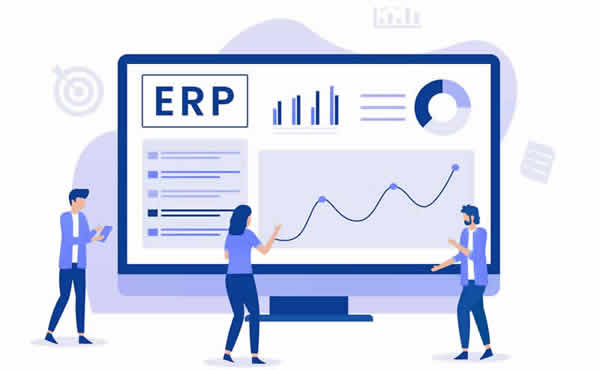Kenning Consulting provides business management consulting services to SMEs.
We take a holistic approach and offer practical solutions that provide a significant advantage in the development of projects.
Both for small interventions and in complex projects, the best results are achieved with the active involvement of various collaborators.
Within the company, people are the starting and finishing point of every solution, from corporate resources to internal and external transformation processes.

PIT STOP - Quick cost effective checkup
A pit stop to continue the race at full speed
PIT STOP is a quick diagnostic test on management control, which analyzes the operational income statement, the annual budget and the reporting system as well as the respective operating procedures, with the aim of finding possible areas for improvement. This analysis allows Kenning Consulting to provide a practical example for an effective management control setting, because every comparison is useful for improving.

BALANCE SCORE CARDS
Apply a management improvement with a global perspective
The company achieves a balanced long-term growth objective when business management evolves organically. Balance Score Cards have the advantage of looking at business management from four different perspectives: the customer perspective, the financial perspective, the transformation process perspective and the learning and development perspective of the organisation. Balance Score Cards take a holistic view of management, making them a complete tool for assessing business management and allowing you to address the various changes in an improvement process in an orderly way. Each perspective has its own specific implications, but as they are all interconnected, inefficiency in one area will indirectly affect the others. Furthermore, if in the past a company could sustain itself on a single area of excellence, this is no longer the case. An increasingly complex and unpredictable environment and fierce competition between companies require the adoption of new management models. The proper functioning of the corporate "machine" must be checked in all its parts, from the mechanics to the engine and electronics, taking into account the ability to adapt the driving style to the environmental conditions.

SUPPLY CHAIN OPTIMISATION
Selecting the best suppliers to increase business competitiveness.
Most of the costs of the company go to suppliers for the purchase of goods and services used in the transformation processes to realize finished products or services for customers. Optimizing the supply chain means selecting suppliers to give greater weight to those that generate value for the company and reduce the number of those who absorb resources without providing extra contribution besides the product or service supplied. This project aims to make more efficient the business transformation chain and to increase the competitiveness of the company.

CORPORATE BUSINESS PLAN DEVELOPMENT
The SME must choose and follow a balanced and sustainable growth plan.
Strategic planning guides the company in the use of resources in specific activities. Having a defined path increases the likelihood of achieving management objectives such as operating results and harmonious and balanced business growth in the long term. Each company has its own characteristics, but in general those that achieve sustained and balanced growth over time share two typical features of corporate culture: firstly, a strong marketing orientation for developing customer relationships, and secondly, a dynamic vision of the business. Kenning Consulting's strategic plan implementation project focuses on the second element to ensure that it produces its extraordinary flywheel effect on business management.

ERP MANAGEMENT SYSTEM
The ERP system plays a central role in business management.
The ERP management system governs all operational and business transformation processes. It promotes the growth of skills and information assets over time. It enables information acquired over time to be preserved in the company and used efficiently. For these reasons, the ERP system is a strategic resource for the development and continuity of business activity and, as such, must be constantly adapted to operational needs. The ERP system plays an essential role in the company's information system and as such must:
- meet current and future operational and transformation needs
- promote the efficient development of the company over time
- have low management and maintenance costs.

LEGAL SERVICE ORGANISATION
The project to organise a good internal legal service
SMEs generally do not have an internal legal service and only call on legal advice when they have to. This attitude was acceptable in the past. Today, it is better to think differently. This project allows the company to achieve four benefits. Firstly, the use of standard contracts by operational staff for the various ongoing negotiations with customers and suppliers allows the creation of a corporate image of solidity and good organisation. It also makes it possible to improve administrative efficiency by knowing exactly all the company's obligations to third parties, avoiding delays and meeting contractual deadlines. The positive outcome of tax audits is also an aspect to be considered. A third advantage is the establishment of a long-term win-win relationship with an eminentísimo professional who provides efficient assistance, thus saving time and obtaining a low rate of disputes, which allows a significant reduction in the cost of legal assistance. Ultimately, the company benefits from widespread benefits and risk reduction across all business functions. For many SMEs that do not yet have an in-house legal department, the project is a small investment that will yield big results.

MANAGEMENT CONTROL FOR SME
Giving operational people the right tools to measure results
The purpose of management control is to help the people who work in the company to achieve their goals effectively and efficiently. This path is never direct and linear, and involves facing and overcoming difficulties and unpredictable situations. To do this, people need adequate tools to read and analyse data and information, and to correct the path if necessary. SMEs often have a limited reporting system, limited to the official accounting documents required by law. This is a shortcoming that limits the possibility of providing operational staff with relevant information on the development of the business. This project starts from the mandatory accounting records and, with a few changes and adaptations, can provide operational staff with specific reports that allow them to work efficiently.